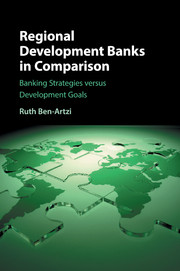Book contents
- Frontmatter
- Dedication
- Contents
- List of Figures
- List of Tables
- Preface
- Acknowledgments
- Introduction
- 1 International Financial Institutions, Development, and Regional Development Banks
- 2 Multilateral Governance: Theoretical and Empirical Underpinnings
- 3 Origins, Politics, and Structure of Regional Development Banks
- 4 RDB Loans and Developing Countries
- 5 Banks or Development Agencies?
- 6 Political and Economic Constraints, Principals and Agents, and Prospects for Development
- Conclusion: Future Outlook
- Appendix 1 Life Expectancy and HDI Rank
- Appendix 2 RDB Shareholders
- Appendix 3 AsDB Professional Staff
- Bibliography
- Index
Conclusion: Future Outlook
Published online by Cambridge University Press: 05 September 2016
- Frontmatter
- Dedication
- Contents
- List of Figures
- List of Tables
- Preface
- Acknowledgments
- Introduction
- 1 International Financial Institutions, Development, and Regional Development Banks
- 2 Multilateral Governance: Theoretical and Empirical Underpinnings
- 3 Origins, Politics, and Structure of Regional Development Banks
- 4 RDB Loans and Developing Countries
- 5 Banks or Development Agencies?
- 6 Political and Economic Constraints, Principals and Agents, and Prospects for Development
- Conclusion: Future Outlook
- Appendix 1 Life Expectancy and HDI Rank
- Appendix 2 RDB Shareholders
- Appendix 3 AsDB Professional Staff
- Bibliography
- Index
Summary
If only you can be completely for, or completely against! But to be against, you've got to have other hopes to offer to mankind.
(Simone de Beauvoir, The Mandarins, p. 323)As the gap widens between rich and poor, both within countries and on a global scale, the need to reduce it becomes increasingly urgent. In response, international institutions designed to address this problem have proliferated. For states, establishing these international institutions required a creative and delicate balance between the desire to tackle inequality (whether sincere or strategic) and the desire to see “returns” (both in terms of financial solvency and of development “results”). Regional Development Banks (RDBs), a subset of these institutions, demonstrate the challenges of this balancing act. These challenges are a product of the development banks’ main function: making loans. The RDBs face the dual pressures of, on the one hand, ensuring that their financial portfolio is sound by averting loan defaults, and, on the other, reducing poverty and contributing to development. A central puzzle guiding this book has been that these two goals are often conflicting – in trying to balance their banking constraints with the objectives set in their Articles of Agreement, RDBs’ policies often fall short of stated goals. This book's analysis of the RDBs advances the fundamental question of whether international financial institutions can function as agents of economic development while saddled with banking constraints.
The book's findings demonstrate that RDBs function more like banks. To move closer to the “development agency” end of the spectrum, donor member countries need to alter the RDBs’ mode of operation. This requires a normative shift that would downplay the centrality of the credit ratings of the banks (and their financial efficiency), and instead emphasize the rewards (financial and otherwise) of successful development. In their current form, RDBs attract donors with a financially efficient model that offers them an outlet for development aid at a relatively low cost (and with substantial benefits to their private sectors). A paradigmatic shift would necessitate donors’ willingness to incur greater financial costs, at least in the short term, while placing a higher value on nontangible benefits such as reputation and security. This would entail acknowledging the realistic public cost of development and poverty alleviation by potentially increasing the paid-in portions of committed funds.
- Type
- Chapter
- Information
- Regional Development Banks in ComparisonBanking Strategies versus Development Goals, pp. 236 - 244Publisher: Cambridge University PressPrint publication year: 2016



